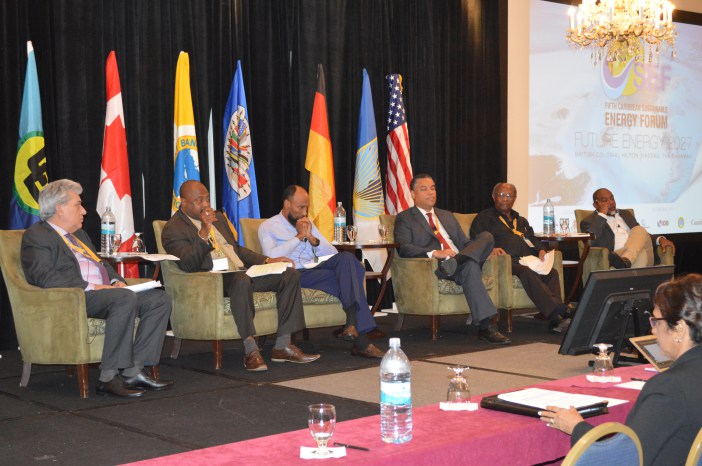

“I am of the firm view that the Caribbean has not fully exploited the many benefits of cooperation,” said Kim Osborne, Executive Secretary of the OAS Executive Secretariat for Integral Development (SEDI). She emphasized the importance of effectively tapping into the region’s know-how on energy, citing Jamaica’s advancements in wind power and Costa Rica’s progress on integrated, sustainable energy development as examples of “our indigenous talent.”
Osborne, a citizen of Dominica who assumed the leadership of SEDI in January of this year, noted that the OAS facilitates technical exchanges between countries as part of its mission to support integral development, and said she hopes to strengthen these efforts. She also encouraged participants in the forum to view energy within the broader context of sustainable development.
“Energy is not provided in a vacuum,” she said. “It impacts and is impacted by several factors, such as poverty, water availability, disaster risk, climate change, health, education and human resources development, human rights, and coastal and maritime management.”
“Future Energy 2027” was the overarching theme of the forum, which looked at steps that can be taken in the next decade to accelerate a shift to sustainable energy through increased use of renewable sources and improvements in efficiency. The event hosted in Nassau, Bahamas, brought together nearly 100 participants, including government ministers, industry experts, and senior officials representing national, regional, and international institutions during January 23-25.
Bahamian Prime Minister Perry Christie opened the forum, providing an overview of some of the steps already taken in his own country and throughout the Caribbean to secure a sustainable energy future. He noted that “there is a lot of work to do” to continue down this path, and added that governments cannot go it alone.
“We must all be agents of change,” he said. “The private sector must play a major role. Each of you must play a major role.”
Participants examined a range of issues, including how to unlock the capital needed for the region’s sustainable energy needs and how to effectively link the Caribbean Sustainable Energy Roadmap and Strategy Platform (C-SERMS)—an initiative of the Energy and Climate Partnership of the Americas (ECPA)—with countries’ efforts to meet United Nations goals on climate change and sustainable development.
The meeting was hosted by the Caribbean Community (CARICOM) Secretariat and the government of The Bahamas, with the support of the U.S. State Department, through the OAS; the Inter‑American Development Bank (IDB); the World Bank; and other international agencies.

In closing remarks, Kim Osborne of the OAS said the discussions had shown that the region needs the following to address the challenges ahead:
“There’s an urgency to moving this agenda forward,” the SEDI Executive Secretary said. “It is now time to put aside the hesitancy and indecision and take full advantage of the window of opportunity offered by lower costs of renewable energy technologies and higher levels of donor interest to accelerate our progress.”
 View Map
View Map